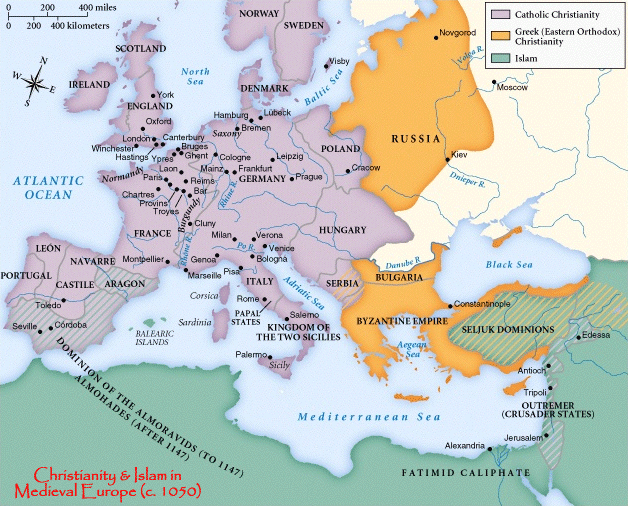Changing the Creed

I could tell I was tired this morning… During the Divine Liturgy I went into autopilot as we sung the Creed, which unfortunately meant that I sang loudly “I believe in the Holy Spirit…who proceeds from the Father and the Son“. Oops!
In case you are unaware, in Eastern Christianity, the last part of that sentence is not included in the Nicene Creed. This creed was the product of two Ecumenical Councils, Nicaea and Constantinople, so technically we should call it the Nicene-Constantinoplean Creed.
The argument surrounding the clause “and the Son” is known as the “Filioque Controversy”, since “Filioque” is the Latin word which was added to the Creed in the West. This controversy dates back to the Great Schism of 1054. The history surrounding it is a little complicated, but the long and the short of it is that one of the reasons much of the Eastern Church broke communion with Rome was due to the addition of this word to the Creed in the West.

However, my purpose in this post isn’t so much to speak about the Filioque, but to talk about another slip up I made today when I sang “God from God, Light from Light, true God from true God…”
More changes?!
Back when I lived in San Diego, I often attended the San Diego Orthodox Young Adults Group. Once when I was hanging out with them, one of my Eastern Orthodox friends asked me why the Catholic Church made so many changes to the Creed. What did he mean? There were changes in addition to the Filioque?! That was news to me! However, he then pointed out that in the West we say:
I believe in one Lord Jesus Christ,
the Only Begotten Son of God,
born of the Father before all ages.
God from God, Light from Light,
true God from true God,
In the East, however, the phrase in bold, “God from God”, does not appear!
Creedal Variations
I spent a little bit of time digging into this issue and I was rather surprised to find out that there were actually quite a few creedal variations in the ancient Church. In fact, you could go as far as to say that all the ancient versions differ at least to some degree from the official text given at Nicaea and Constantinople.
For example, the Councils used the first person plural throughout: “We believe… We confess… We await…”. However, the Byzantine Churches changed it to the first person singular: “I believe… I confess… I await”. Historically, the Latin Church did the same, although until relatively recently, English-speaking Catholics would say “We”. However, following the liturgical reforms of 2011 and retranslation of the Roman Missal to represent more faithfully the Latin text, all Catholics now say “I” instead.
Another textual variation in the Latin text is the one mentioned by my Eastern Orthodox friend. It is true that, in addition to the Filioque clause, the Latin liturgical text has another difference. In the Latin, it reads “Deum de Deo, Lumen de Lumine, Deum verum de Deo vero”, which translates as “God from God, Light from Light, true God from true God”. It turns out that the clause, “God from God”, although not found in the Creed from Constantinople, is actually found in the earlier creed from Nicaea. For some reason, this was retained in the Latin. The Armenian text includes this and other variations as well.
Conclusions?
So what should we conclude? I’m not really sure, but I think we can acknowledge two things. The first is simply that there is more variation in the “Nicene Creed” than we commonly think, and the second is that I need to make sure I have a nice cup of tea before I attempt to sing any complex theology in the mornings.
UPDATE: Michael Lofton just recorded a livestream with even more details on this subject: